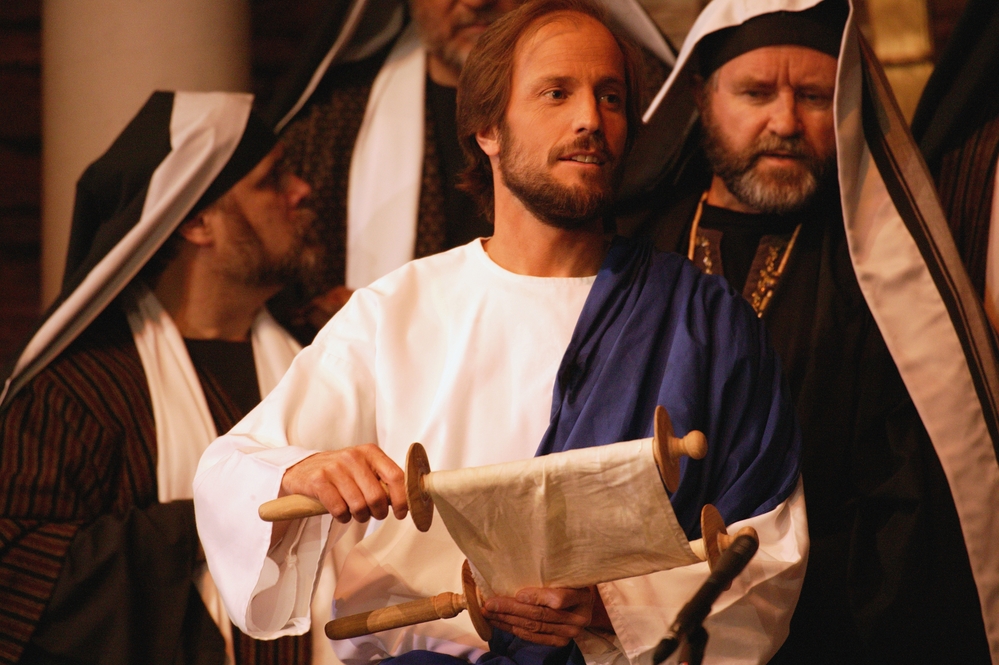
I wrote about A Mic Drop Moment in First Century Galilee back in March of 2020, referring to the passage in Luke 4 in which Jesus read from the Isaiah Scroll in the synagogue in Galilee where he announced his public ministry. I have been focused on that passage since the spring of 2019, when I was drawn to it for a talk on doing justice.
I am still continually drawn to that passage. I intended to write more about justice when I wrote that piece in March of 2020, but it wasn’t until July that I actually got around to it. (See Evangelicalism and Injustice Part I, Evangelicalism and Injustice Part II and The Need for the Church to Address and Injustice, for example.)
The world changed dramatically between March 2020 and July 2020. COVID shut down commerce and isolated people. The George Floyd killing happened in June, and we were embroiled in nationwide unease and unrest. The need for justice in a spiritually dry and parched world was quite evident, then, as the scabs of centuries of racial injustice were torn open and bleeding.
The focus of my writing has been on my fellow evangelicals. They way I have phrased this introduction may strike discord among my church family (or so I imagine as I write this).[i] I am convinced, however, these things are centrally important to God and how the body of Christ lives out the Gospel in the world.

Righteousness and justice are the foundation of God’s throne. Mercy and truth go before Him. (Ps. 89:14)
If we want to get closer to God, to know Him better and to be like Him in this fallen world, we need to focus on these: righteousness and justice. They are the twin pillars of God’s character.
This morning, Jeff Frazier’s sermon at Chapelstreet Church in Batavia, IL was on the same passage in Luke 4 that I have been reading periodically since 2019.[ii] I focus on a particular emphasis today that prompts this article, but let me set the scene first.
The entirety of the passage is found at Luke 4:16-30. I encourage you to read it now or read my mic drop description of it (as if Jesus read from the Isaiah scroll in a neighborhood church today).
The key points for this article are that Jesus went to his home synagogue and read from the Isaiah scroll to his “own people” who knew him well. When Jesus said the messianic message of that passage was being fulfilled in their hearing, the people asked him, “Aren’t you Joseph’s son?”
Still, they spoke well of him and marveled at his “gracious words”. (Luke 4:22) Then Jesus made them uncomfortable by foretelling that they would taunt him and reject Him, adding, “[N]o prophet is acceptable in his hometown.” (Luke 4:23-24)
I imagine the synagogue went quiet quickly. They probably looked at each, thinking or saying things, like,
- What is he saying?
- Did I just hear him right?
- Weren’t we just saying how he has grown up into a fine young man?
- Did he just accuse us of rejecting him?
- We haven’t done anything!
- We weren’t even thinking those things!”
But Jesus didn’t stop there. He turned the heat up a notch! This is where things really got dicey in his hometown synagogue. This is the point I am seeing in this passage today – something for us to think about in the American Church today.
Jesus referenced two passages of Scripture and two stories of revered Hebrew prophets. His citation to Scripture may not have raised eyebrows. It was the application of them that riled up his synagogue audience.
The first story is about Elijah and the poor widow in Sidon.[iii] Sidon was outside of Israel in the territory of the Baal-worshipping Phoenicians. It was the hometown of the evil Queen, Jezebel. She was the arch-nemesis of Elijah and sought to end his life.
God sent Elijah to the widow in Sidon in a time of great drought. Elijah sought her out and asked for water and food, though she barely had enough to feed herself and her child. She him the food and drink he requested anyway, and God blessed her with miraculous provision.
The second story is about Elisha and Naaman. Naaman was commander of the army of the King of Aram who periodically raided and plundered the Israelites, taking young Israelite women captive.[iv] Naaman developed leprosy and sent for Elisha to heal him at the suggestion of a captive Israelite slave.
Naaman was indignant and filled with rage when Elisha only sent servants with instructions to wash in the River Jordan. Elisha’s servants, though, talked the commander into doing as instructed. When he did, he was healed.
These stories, in themselves, probably would have seemed benign, but for the fact that Jesus just accused his family, friends and neighbors of rejecting him (something they hadn’t even done… yet), and then Jesus said (in my best paraphrasing):
“There were many widows in Israel, but God sent Elijah to a lowly Baal-worshipping widow in the backwards land of Sidon.”
Luke 4:25-26
and
“There were many lepers in Israel, but God only healed the wicked commander of the neighboring kingdom that killed, plundered and enslaved God’s people.”
Luke 4:27
Can you see why this hometown crowd was less than pleased with Jesus that day?
In fact, were enraged. They drove Jesus out of the synagogue. They drove him through town. They kept on driving him all the way to a cliff on the edge of town, and they intended on throwing him off!
Jesus provoked an extreme reaction from his hometown folks when probed what was in their hearts. Jesus knew they would ultimately reject him and God would bypass them and take the good news of the Gospel to the pagan world.
They were outraged. The nerve!
Those are stories from their Scripture, of course, stories about prophets they revered. How could they have missed the significance of those stories all this time? How could they have missed the application of those stories to their present time?
Easy. We can see that clearly 20 centuries later, but they didn’t have the perspective to see it. Time and perspective allow us to see objectively now, but events happening in real time are harder to keep in perspective.
Here is the application I see for us today: we really need to push ourselves to stand back from the emotion and cultural influences of our time to gain what perspective we can achieve.
As I push myself to do that, which is no easy task, I believe I begin to see things that I didn’t notice before. I have been writing about those things now for a number of years.
I see in me a similar tendency to want to respond as the Galileans did to Jesus. I want to believe the narrative that Americans are primarily good Christians, blessed by God for our advancement. We are superior to most other countries in the world in our democracy, technology, commercial enterprise, freedoms and moral convictions. We lead the world.
I find in myself a guttural reaction to any challenge against that perspective. I know we aren’t perfect; but look at other countries! We are much better than most (if not all) other countries in most all categories! Right?

Whatever the truth is, the attitude is wrong for starters. God lifts up the humble; the meek shall inherit the earth. God gives grace to those who know they are sinners. God is just, and He is the justifier of those who have faith in Jesus (not themselves). (Rom. 3:26)
God is also no respecter of persons. (Acts 10:34) God chose the nation of Israel for His purposes. God has certainly blessed the United States of America, but we are not exalted in God’s eyes. God only exalts the humble. If we become proud, … well, pride goeth before a fall!
God intentionally passed up the widows and lepers in Israel to bless a poor pagan widow and heal a rich pagan commander. Jesus used those stories to challenge (provoke even) the hearts of the good Jews of his hometown. I believe Jesus is challenging, even provoking, the good Christians of the United States today.
These stories reveal that God is interested in blessing poor, pagan widows and rich pagan leaders, even if He has to bypass “good” Jews (or Christians) to do it. Of course, no one is good except God.
God desires to bless and heal the world. The Good News Jesus announced that day in the Galilean synagogue is for the whole world!
If we do not have similar desires and purposes, we are falling short of God’s character and desire for us. He calls us and works in us to conform us to His image. Justice is at the foundation of who God is. We need to take justice seriously.
If we do not care about justice to others, we are not operating in line with the purposes and character of God.

I think about these things in relation to the Church’s stance on racial injustice, immigration and other controversial issues of our time. I believe we need to push ourselves to step back from our own assumptions and cultural influences – not just secular ones, but thoughts and patterns in the Church that may not line up with God’s desire for justice.
Jesus was born into the nation of Israel at a time when they had long lived in separation from the cultural influences of the pagan world around them, maintaining their own community, culture and worship of God despite those pagan influences. Yet, when he came to his own, his own people didn’t recognize him.
They had developed their own assumptions and cultural influences that blinded them to what God as doing. When Jesus stood up in his hometown synagogue and said some controversial things, suggesting that God desires to bless the pagan world, they didn’t take it well.
I see a parallel response in American evangelical circles on the topics of racial injustice and immigration. We want to believe we are the good guys, but we squirm when anyone suggests we should consider that “black lives matter” or that we should have generous immigration laws.
We spend enormous effort castigating Black Lives Matter (the organizations and political philosophy), forgetting that black lives really do matter. We focus on securing the border and enforcing immigration laws, forgetting that God loves mercy, and the outcast, and the sojourner.
God never let Israel forget they were sojourners in the land of Egypt. Paul and Peter reminded the early church (and us) that followers of Christ are just sojourners in this world. We are only passing through.
I believe Jesus might get a similar reception in some of our neighborhood churches in America if he walked in today and preached a sermon. We would never threaten to kill him, of course. We are better than that. We would just label him a progressive Marxist.
[i] I also wrote about the need to distinguish Critical Race Theory from “gospel justice” in Critical Race Theory from a Christian Perspective. As Christians, we need to understand how God defines justice and how God addresses injustice. While there may be some overlap with things the world calls injustice, and even some overlap in things we can do to address injustice, the Gospel is only real, long-lasting remedy for injustice, we are doomed to futility in trying to address injustice without the Gospel and God.
[ii] This week begins a series on justice. You should be able to watch the sermon on February 7, 2020, when it is uploaded to the sermons page of Chapelstreet Church website.

Once again… very insightful article 🙂
LikeLike